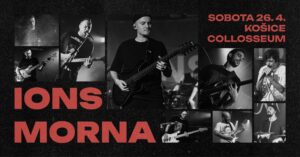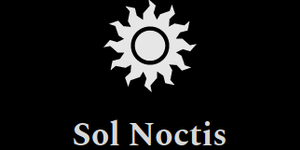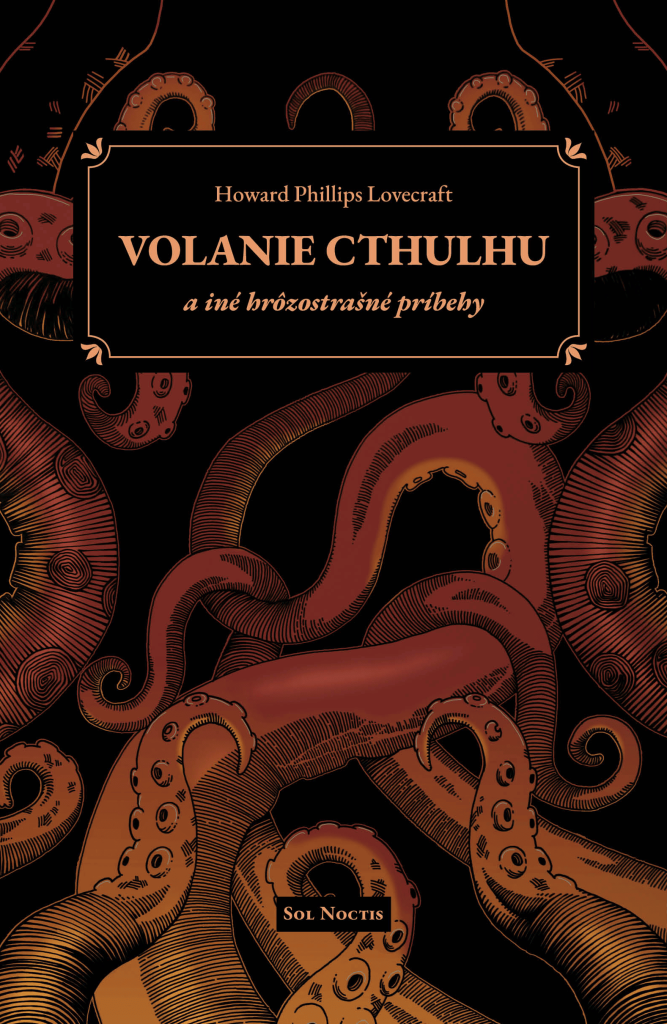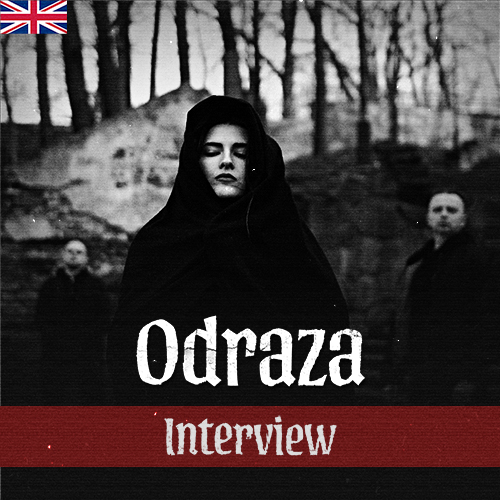
We think that for the most of our readers the name Stawrogin or Odraza, Gruzja and other projects and bands of this gentleman are not unknown. His work has achieved him a stable place not only on the Polish scene thanks to very unique, experimental approach to the genre and a characteristic vocals. An interview from the Kraków streets brings B.
Hi Stawrogin! How are you? Although Odraza had been silent for some time, I can see you’re keeping busy with lots of other projects and bands. Totenmesse released new album this year, so has Gruzja with which you’ve been playing a lot shows. What are the plans for 2024? Is there a space for Odraza somewhere?
Hopefully, yes. We’ll do some shows with Gruzja and Totenmesse as well but it certeinly must be the year for some Odraza effort. We’ll check some new ideas but I must admit that I’m a bit tired of the music in general so 2024 will probably be a borderline year for me to some extent. Let’s see where it brings me.
Let’s take it from the beginning. When I first discovered Odraza, it was – obviously – with „Esperalem tkane“ album. Correct me if I’m wrong, but Esperal should be some sort of medication for alcoholics to help them stop drinking, so the album name could be translated as „Woven with Esperal“? As I heard it for the first time and was looking at the name of the album, the cover art, the theme and the overall sound… I said to myself: „This is bit of a Shining worship, isn’t it?“. Was Shining – and I of course mean the Swedish one – an inspiration when writing „Esperalem tkane“? What was the initial thought when you started writing the material for this album?
The initial idea was to bring these sort of demonic and misanthropic themes down to earth as I’m closer to materialistic point of view. I do not worship deities of any sort, I’m also tired of the devil being used as a metaphor or the real force as its depictances are directly christian. However there were no serious deliberations on artistic direction – it came to me naturally. The alcohol has been in my family for years – I knew what a disaster caused by it can look like. Esperal is a medication that is sewn under the skin so you translation is correct. Shining has been an inspirtaion at that point, yes – as well as Armagedda, Lik, Voivod, Virus, Ved Buens Ende, Dolorian.
Moving on to a sort of a special issue of a record – „Kir“ – a live album from a special performance at Krakow museum during an event commemorating the horrors of World War II. How did you get yourselves to do a show there? Odraza is not doing live performances, why did you decide to do – although a unique – performance there?
The only reason we’ve decide to make it happen was because we had unique occasion to record the piece live in a very professional way. We had a friend working for the Museum, he borught the idea of live performance connected with old movies made by Tadeusz Franiszyn – AK soldier. In some way Kir is a soundtrack to these obscure pieces depicting Płaszów concentration camp during World War II.
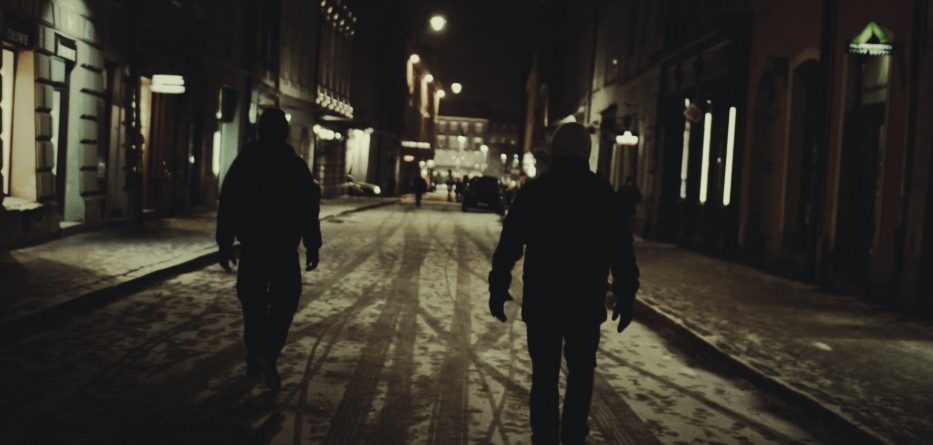
When it comes to „Rzeczom“ album, I feel this was a giant leap forward for Odraza. Without any brownnosing, that album showed how uniquely a modern black metal record can sound like, how it should be done and to this day, it’s a tremendous shame that it’s not more well known. Can you tell us what was the idea behind it and what did you want to achieve? Is it a conceptual album?
Odraza is a kind of diary so to me personally both albums are conceptual ones. It does not necesserily mean that they have to be the same for the listener – there’s a limit at which the personal lyrics of the song must convey a universal and clear message – otherwise it’s a babbling. At the beginning I’ve probably been fueled by vanity – I’ve just wanted to beat the first record. Some years later it was clear to me that I have a great opportunity to illustrate the changes in my way of thinking. It still is a dark record however there’s a room to come to terms with the fact that the world is just a cold and grey mess. In terms of music, we’ve made a big step forward as composers – I think that more regularily working bands might have had 2-3 albums between „Esperalem Tkane“ and „Rzeczom“. We didn’t want to compromise.
Continuing in this matter, I understand Polish language a bit, but not that well. With that being said, the name „Rzeczom“ means… „Things“? What does it stand for? And what about the lyrics in the album? What themes do they cover? Is there a general topic around which the lyrics circle or does every song stand for itself? From the very little I understand from Polish I know that those lyrics are written with a lot of thought, it’s not just some random phrases that sound cool (what is a casual practice in a black metal genre), so what is it about?
I’d translate it „To the Things“ – the work dedicated to the world which is reduced the objects and their interactions. The reality in such version is a cold place where emotions are extravagant and mean nothing – love and compassion are relative. The people are things as well…
Who is the girl on the cover art and why did you choose this picture?
She’s our colleque. We’ve chosen the picture because it relates to the atmosphere of the lyrics – it’s pawky that we have the picture of an old women as the cover of our debut album and much more juvenile one on the second album. The emotions on her face however make her even older than the one from debut album cover.
In some interview with Odraza I heard that you actually took some singing lessons. You use clean singing as well, but I can imagine that a formal singing lessons can help you get better controls of your voice even in the harsh singing dimension. Did it help you somehow? What did you learn considering the screaming techniques, if anything?
Honestly nothing. It has improved my clean singing a bit and overall attitute toward singing but has nothing to do with harsh vocals.
The latest record of Odraza was an EP called „Acedia“, which was a soundtrack to an exhibition, again, at Museum of Krakow. This was the second time you did a collaboration with this museum and this time, it was an exhibition dealing with the impacts of Covid-19 epidemic. Why did you decide to take part in this event and why Museum of Krakow again? Does Odraza as a band reflect some close connotations to such global, or societal events as world conflicts or pandemics?
No direct connotations – I try to think about it as creating soundtracks. You’re limited by the source material and have to make your way through it with your own consistent vision.
Moving on to your other musical activities. I myself am a big fan of Gruzja and I’ve been always curious about the name. Does Gruzja mean „Georgia“ as in the name of a Caucasian country? If yes, why did the band choose this name? If not, what does it mean?
Yes – the name relates to a country and has been chosen during band formation time. I was supposed to be on vacation in Georgia at that particular time however… life sucks sometimes.
Gruzja is a kind of a collaboration in my eyes, it incorporates members of Furia, Biesy, Licho, Mentor and even without mentioning your other projects, many others. What led to creation of this band?
I think it was Artur’s creative diarrhea and my wasted 2018 that brought Gruzja to live. Since then, it has functioned as a creative platform rather than a band. More like a street theater open to quests – our fans are band members to some extent.
Gruzja started with a kind of an irregular practice: as it was founded, year after you released two albums in the same year. Why did you decided to start in such ambitious fashion and how would you differentiate albums „I iść dalej“ and „Jeszcze nie mamy na was pomyslu“ from each other? Because they definitely are different.
At that point it had this „no boundries at all“ vibe that is really hard to evoke and maintain during a long-term run. We had no plans – it was just simple fun of creating absurdity.
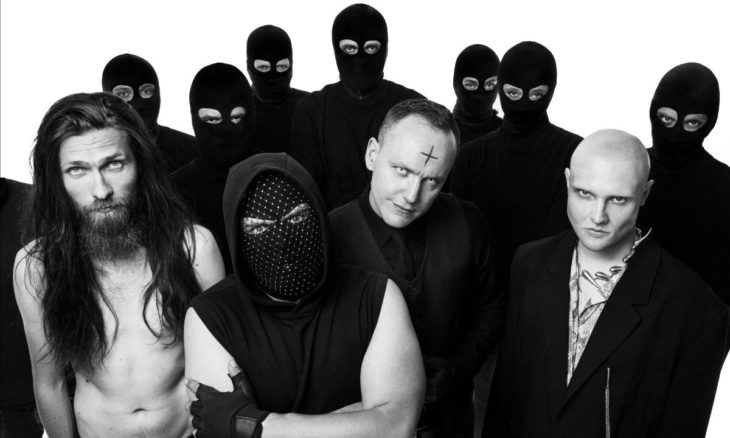
In 2021 you’ve recorded an album called „Vulgator“, which serves as a soundtrack for a videogame „Priest Simulator“. I haven’t played the game yet, but I watched a trailer and it looks great. What is the story behind this, how did you get yourselves to record a soundtrack for such a game? And for gamers, such as myself, how can we play the game? Is it commercially available to buy?
Michał from Asmodev Dev. has contacted us and presented the idea of Gruzja doing soundtrack for Priest Simulator – nothing more relieving could have happen for such entity as Gruzja. At last we could make a pop record.
When it comes to Gruzja, you kind of moved from the sound of the first two albums towards a more… psychedelic (…?) sound. Why the change and should we expect more of this sound in the future?
Expect the unexpected. We’ve tried to organize our work, create future concepts etc., but the best method of working within this collective is to be absolutely open to the time and humanity bringing us new levels of absurd as a fuel.
Gruzja has four vocalists. I didn’t think about that before, but I’ve read somewhere that every single one of you four should represent some vices or societal problems or drug addictions or something like that. Is it true, or is that just some kind of a fan theory?
It’s an absolute nonsense. All of us represent the same spectrum of deadly addictions – selfishness and megalomania being the most prominent ones.
I’ve seen Gruzja performing at Josefstadt in 2021 and I can’t abstain from asking this question. Fans – and you as well – shouted „jebać Gruzje!“ during your show and I’ve seen this practice even in videos from your other shows. How did this tradition happen?
At the beginning, we’ve been quite controversial band in Poland, which says a lot about polish openness to strangeness than about us. At that time our adversaries used to write „jebać Gruzję“ to express dissatisfaction with the fact that the band is gaining popularity or because of… congenital bitterness. It has become quite common welcome phrase at our gigs. Nowadays we do not know whether the one using it expresses his admiration or is insulting us.
B.: Okay, back to more general topic. The Polish black metal scene was always strong and very high quality, but in the past it was mostly in this satanic or pagan general vibes. However from a certain time I started to notice this rise of a… well, let’s call it a „decadent“ black metal wave, which came strongly with Furia, Odraza, Biesy, Gruzja, maybe Kly or Morowe. Is it a thing or am I just imagining things? Do you also notice that in Poland, more than in other countries, this variety of bands started to emerge?
„Decadent“ is a worn-out label. I’d say that satanic and pagan themes have nothing to do with the real life around us and to me personally the heaviness of the music should be supported by the lyrics rooted in a real world as it’s the source of our disintegration & demise. In such interpretation polish bands have simply become more serious.
I remember from a certain interview that Odraza does not plan on doing shows. You were open to it, but Priest was not. Can you elaborate on that? Is it possible you will change his mind?
I’ve stopped trying to encourage him some time ago. We still have disagreement upon the issue but we won’t give up our acuaintance because of that. It may however be the reason Odraza falls apart some day but it doesn’t bother me now.
Out of all your musical projects and bands, which is the closest one to you and why?
Odraza. It’s my own story and substancial amount of the music is my songwriting. That’s it, I think.
Do you know any black metal bands from Slovakia? Do you like anything from our scene?
Malokarpatan, Death Karma, Krolok, Remmirath
When could we expect a new album from Odraza?
Not in 2024, that’s for sure.
Thank you very much for your time, Stawrogin, you’re doing a great work, so keep it up. The last words are yours… oh yeah and: jebać Gruzje!
Thank you for appreciation and the interview!


